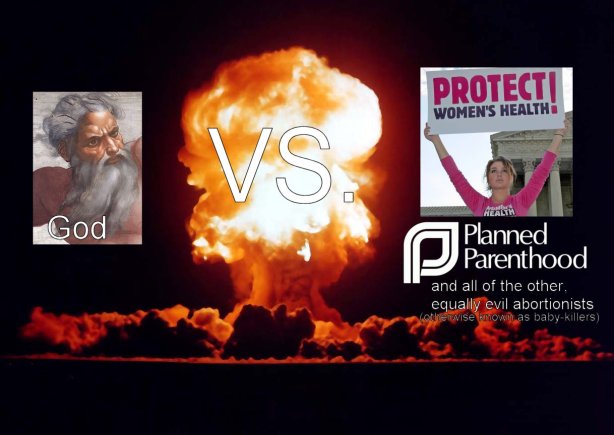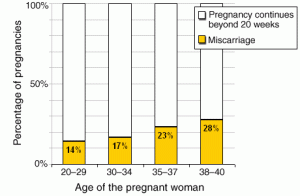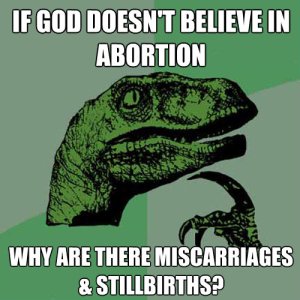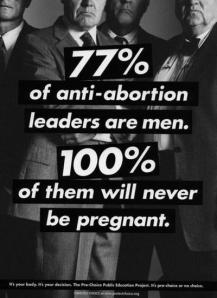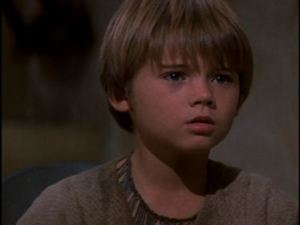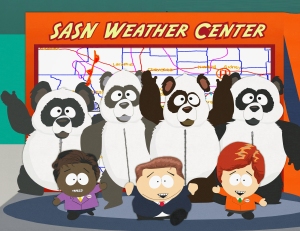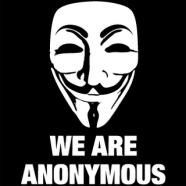Archive
Stop Killing Gaming Part 3: Nobody Takes Gamers Seriously
I’ve discussed a lot of parts of gaming. I’ve talked about why I don’t think video games are art, why DLC (especially shitty DLC) is killing gaming, and why games like COD are destroying the medium.
You may notice that in many ways these are focused solely on the companies producing things that damage overall gaming. I have, thus far, neglected to really accuse anybody but the companies for hurting gaming. I guess I’ve been a little hard on gamers for buying into these things, but I don’t really blame them for buying what’s available.
Today I put an end to that by discussing the fact that nobody really takes gaming seriously. I’ll be looking at video gamers themselves and video game media.
Gamers in the Public Eye
Something Awful, if you’re not familiar with it, is a (brilliant) humor website. They frequently post the mistitled (it’s hardly daily) “Awful Link of the Day”, a tradition that has existed for some time on the website. Not too long ago they covered a particular ALOD that I was slightly put off by: GamerFood.
Every ALOD gets a brief entry from one of the SA writers detailing what the link is about and why it’s so awful (although usually it’s pretty self-evident). In the opening sentence of the GamerFood link Daryl “Fucking” Hall urges the reader to “[f]indme a more irritating ‘subculture’ than gamers, I dare you. [. . .] at least those dudes aren’t constantly griping about how their expensive toys aren’t considered art. Gamers seem insistent on constantly reminding the public that their toys are serious toys, deserving of respect”.
If that’s not a little disheartening to you, I’d imagine you don’t consider yourself a gamer. If you are a gamer, then you’re probably reminded that, as is often the case with observational humor, the truth can sting just a little bit.
Gaming wasn’t always a part of the public eye. It was, for some time, just considered the domain of nerds in their parents’ basements. The very games I often deride—games like COD—are the games that have, to some extent, made it acceptable to be a gamer.
After all, the typical image of a gamer is some clueless nerd, and that nerd always has to be inept with women. (Though I suppose that was implied by the use of the word “nerd”.) Nonetheless, a lot of the people who play COD are the complete opposite of this subgroup, often fitting into a category most appropriately described as “total douchebags”.

What most people think of when they think gamer. I’m sorry to the poor guy who somehow ended up as the #1 result when you Google Image “video gamer”.
But even with this increased acceptance, gaming is something that people outside of the industry and the subculture rarely take seriously.
Cracked did an article that, oddly, managed to nail the issue almost perfectly. In that article, David Wong (who is probably one of the only competent writers—besides DOB—on the Cracked staff) talks about all the issues that face gamers, even today. I’d suggest reading it for no other reason than he talks about this issue in more detail than I will. Also, it’s in list format for those of you who are put off by having to read things.
To summarize Wong’s points briefly: we’re still considered lonely virgins, the game manufacturers think we’re immature morons, games—after forty years—are still terrible at storytelling, the “technical novelty” (to use his words) still amazes us, and we’re extremely entitled.
Anyway, while he brings up good points, I think that the first two and the last one on that list are the most relevant to my points.
The World Thinks We’re Spoiled Teenagers
The world still thinks of video games as kids entertainment. Should the world realize for even a moment that not all video gamers are teenagers, we get things like GamerFood. You have to love the person who invented GamerFood. I can only imagine that drinking an energy drink and making some Hot Pockets is too hard, so why not just make energy drinks in nut form? Kill two birds with one stone.
Yeah, we totally deserve to be taken seriously.

Kind of witty, but still not the best way to speak your mind. Yet Google provides countless images and links with a similar means of expressing disapproval. Good job, guys!
Another point in case: I take the side of those who hated the ME3 ending, I have to admit that a lot of the outrage around it was poorly vocalized. Rather than the masses of gamers talking about the reasons the ending sucked (lack of agency, that they are all the same, etc) we all basically whined nonstop.
The reasons we dislike the ending are legitimate, but all the rest of the world heard was “QQ QQ QQ QQQQQQQ” from us. That is, assuming they thought in stupid gamer/internet slang.
I should clarify that David Wong’s idea—and by extension my discussion in this post—of entitlement is in terms of the fact that gamers are pirates and will always consider the price tags on games too high for the effort put in. He does not suggest entitlement in the sense that I discussed it previously.
That is to say, where I think that the (well written) complaints about the ME3 ending are just pointing out that we were misled about the game, entitlement in this case refers to the fact that gamers always want more out of games and they want it for free.
Here are some other examples of how gamers are spoiled kids; examples that you could swear were cases of little kids throwing temper tantrums. Oh, and youtube has no dearth of videos about spoiled gamers being pissed off. No doubt some are fake, but then art imitates reality.
Honestly, it’s not all that surprising that nobody takes gamers seriously, because we don’t seem to take ourselves seriously. Whenever something bad happens in video gaming, we respond like spoiled children and the world, realizing this, just treats us accordingly.
Reinforcing The Stereotype of the Nerdy Virgin Gamer
And, most of all, David Wong’s point about gamers being immature pricks in the eyes of the companies is hilarious. He posts a number of pictures of various tits and asses from video games.

“I was going to become a supermodel, but then I realized by amazing body would be better used as cannon fodder against aliens.”
Let there be no mistake: video games objectify women in ways that would make Hugh Hefner and Larry Flint blush. Every video game female in history has been ridiculously attractive. Unless she’s evil. If a future society could judge ours based solely upon video games, I’m guessing that they’d be incredibly offended and consider us a society of misogynists.
You might try to argue that the game companies just turn female characters in games into anatomical bastardizations of the human body just to try to sell things on cheap sexuality. Hell, the fighting game franchise Dead or Alive put out a goddamn Beach Volleyball game. They sold a game entirely based upon the premise that there are virtual women with bouncy breasts.
And make no mistake that just like any other form of media, selling things is at the heart of this objectification of women. For those of you women (if there are any) reading this post, please don’t mistake this part of the article as me pretending I have never bought into the shit video games pull on me. I play a female character at almost every opportunity because I feel like it’s way cooler when she destroys everyone around her. I’m just as complicit as everybody else in this.
But I also only realized recently how bad this particular phenomenon was.
As I pointed out when I talked about entitlement, the video game companies are just companies, and they wouldn’t do something if it didn’t sell. Ever wonder why every female character in every video game is hot, has huge breasts and a shapely ass? Where are the curvy women? Where are the women who aren’t supermodels?

At least Miranda has the excuse that her dad designer her body that way, for whatever creepy implications we might get from that. But how is that ridiculous bodysuit even feasible in combat?
They got left behind when video game companies realized that—even more than movies—people buying their games only want to see attractive women. They want that because they are adolescents (or adults stuck in their adolescence, in the case of most COD players). They put big breasts and tight asses in games because that is what sells to us, the gamers.
Don’t get me wrong, men in these games are invariably attractive too, so we have the same thing going on in video games as in movies. Every guy is some musclebound, crew-cut adonis and every woman is a supermodel. I get that movies, TV, magazines and everything else in our world do that. So you might be wondering why I’m picking on video games in particular.
The answer is that video games can control this. Hollywood has this unique problem where they need to find people who can act. Tatum Channing may seem life proof otherwise, but your Joe Windrider off the street isn’t going to have the acting chops to make it in Hollywood. Even then, there are plenty of average-looking actors out there, but Hollywood still has a smaller pool to draw from than usual. In the end, mostly by Hollywood’s own doing, the people who aren’t attractive and who cannot act are going to get filtered out, so by time you get the head shots to the casting director’s desk, he’s got a homogenized pool of actors from which to draw.
Video games don’t have this convenient excuse. Video game designers can create anybody they want, and so there is no reason that almost every woman should have a ridiculous body and be attractive. No reason other than we, as people, are shallow. But then, that’s a deeper social issue that I’m not going to discuss.
My point is just that even if we assumed that nobody wanted to see unattractive people in video games, they do NOT all have to have exaggerated breasts and asses. Video game designers have a choice, but they know that gamers will be put off if their video games don’t double as masturbatory aids.
The Gaming Media Is a Joke…
I’m not going to just pick on gamers’ behavior in general. The gaming media is just as complicit in this as anybody else. The thing is, gaming media exists for two reasons: to talk about gaming and to do so in a manner that attracts readers.
I guess that’s why Kotaku has a goddamn cosplay subsection of their site. It also explains why the vast majority of cosplay articles involve women, and often they are of the scantily clad variety. It explains why somehow Jessica Chobot got put into Mass Effect 3 in one of the most ridiculous outfits any reporter has worn in history. Sex sells, and this is apparently especially true for gamers.
But beyond that, one of the reasons that video game media is so damaging is because there is no reason to take it seriously. Just like we have no reason to take gamers seriously, gaming media is tailored to gamers and written by gamers. Thus, it is basically full of fluff that is of no consequence.
Once, as a kid, I remember reading in a video game magazine a full article about Lara Croft. It was not about the Tomb Raider games, it was about Lara Croft. It contained an interview. Video game media is, at its heart, the damn swimsuit issue of Sports Illustrated in every article. It appeals to the lowest common denominator within all of us.
But there is another reason nobody can really take video game media seriously: it is one gigantic conflict of interest. IGN had one of the major video personalities in Mass Effect 3 and yet reviewed it anyway. Their review page for ME3 had an advertisement for ME3 on the very same page. Recently when I went to the website to check on it, their entire website was one gigantic advertisement for Battleship.

Nothing wrong with this…nothing wrong AT ALL. By the way, that’s the IGN front page. I know, you’d think I accidentally went to battleship.com.
Game magazines—especially the official ones—are often under huge pressure from the manufacturer to make the console look good or else get funding pulled. Game websites are typically based upon ad revenue—advertisements for the very products they are trying to sell.
If you were to read a movie review in the newspaper and noticed a full-page ad for the same movie on the opposite page, you might wonder at the integrity there. Yet few give a second thought to that very conflict of interest when it comes to gaming outlets.
To sum this up: the gaming media takes itself super seriously, yet the seriousness with which they speak about topics is often undermined by the topic itself. In addition to that, almost all gaming media outlets face some conflict of interest, usually because they’re based upon ad revenue.
…But the Gaming Media Is Also Too Serious
Yet in a mind-boggling contradiction, the gaming media simultaneously takes itself far too seriously. I want the world to look at gamers in a fonder light, but I do not consider video games to be a totally serious subject.
I once got into an argument with a couple of the guys over at The Verdict about whether to side with the Stormcloaks or Imperials in Skyrim. (The correct answer, by the way, is Imperials. Ulfric Stormcloak is a bigot and a tyrant in the making.) But while we were basically yelling at each other, we walked away laughing because it was a video game argument. It just didn’t matter in the long run.
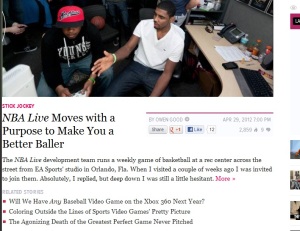
What’s wrong with this picture? If your answer is: “there are four articles complaining about video game baseball” you win.
Video game media sits around yelling about video games, but they never stop to realize how ridiculous their ferocity really is.
Kotaku (sorry if you like Kotaku, but honestly that site is trash), while I was doing research for this post, had a main page article (picture included in this article) titled “NBA Live Moves with a Purpose to Make You a Better Baller”. Then it included three links to other articles about sports games, including “Will We Have Any Baseball Video Games on Xbox 360 Next Year?”
I feel for the baseball fans who want to play baseball on the 360, but is that seriously important? I mean, can’t you just play last year’s game? I know the new rosters are included, but that’s about the only difference and I think you’ll live if your team isn’t perfectly in sync with the current team.
Do not think that I am dismissing anybody who takes gaming seriously. I consider myself a gamer, and I care about games. I am writing about games. But I think that at the end of the day I am able to walk away—even when I’ve written about a game and seem to have gotten upset, as in the case of Kai Leng being goddamn stupid—and know that it doesn’t really matter in the long term.
Reviews and previews of video games fall into the “too serious” category. Reviewing anything is going to be subjective, but reviewing video games is almost more so. I think any gamer can agree that we all know when a game is really bad. But look at the metacritic user reviews for any of the major (and well reviewed by media outlets) games to come out this year so far. You’ll find that gamers can never seem to agree with each other as to what a good game is.

Just read the start of that review. You’d think you’re reading a a book review from School Library Journal, not an IGN article. (Also, absorb the hilarity of a paid advertisement for the game they’re reviewing on the same page.)
Part of that is because gaming genres are subjective, and also that they’re blending. It used to be if you wanted a strategy game, you got that. RPGs were straight-up RPGs. And yet now we see genres blending and changing in odd ways. I’m not a huge fan of traditional RPGs, but gamse like Knights of the Old Republic or Mass Effect 1 are incredibly enjoyable for me.
Beyond all of this, though, you have to consider that reviewers often consider things like graphics, story, sound and gameplay and then compile an overall score. Personally, if the graphics are a tad behind but the game is otherwise spectacular I have no problem with it. Yet you frequently see games get lower scores because they were in development for so long that their graphics aren’t as great.
In the end, the websites and magazines providing these articles act like there is somehow an objective way to review games and ride that premise out. This falls into the “taking things too seriously” because in the end its a game. If you enjoyed it but the graphics weren’t fantastic, should that really matter?
What Should Game Media Do to Fix This?
Like in all my other posts, I’ll conclude with some suggestions to help fix this and, more than that, some hope that things will change.
I’ll start by suggesting that the video game media needs to get its act together and start writing on topics of substance. (I’d like to think I fall into that category.) If you’re going to speak authoritatively and seriously about gaming, you need to say something unique about it.
The current topics of these media outlets run the gamut from reviews to full previews of new games. We often see articles about the technical advances of the medium. What you rarely see are people thinking of the larger implications of trends within gaming.
If gaming is ever to be universally considered an art form, then we need to start treating it that way. Rather than talking about what the hottest new brush techniques are, we should be talking about the meaning and impact of games. I’d like to think that I am contributing to this, as I never just look at a game and talk about it, but rather talk about what it means in some larger societal context.
This is, to me, the key to changing the face of game media.
If that fails and we still insist on covering the same fluff topics, then perhaps the media outlets just need to change their tone and realize they’re talking about video games, not the presidential election. Lighten the tone up some.
How Do We Fix Perceptions of Gamers?
Suggesting how gamers as a whole can change perceptions is a lot harder. There are already social concepts of gamers that we may not be able to break easily, if at all.

Mountain Dew Game Fuel: when your drink isn’t extreme enough for skateboarding, just put an orc on it and sell it to gamers.
But I do think that we, as gamers, need to start somewhere. When a company decides to release something like GamerFood, I think that we—as gamers—need to stand up and tell them how insulting that really is.
And guys, these things really are insulting. It’s insulting to assume that all gamers are so lazy or easily distracted by games that they would rather eat some foul-tasting mixture of Red Bull and mixed nuts than get up and microwave some damn pizza rolls.
When a website features an article about the hottest video game women, we need to stand up and—like actual human beings who have met women—point out how insulting that truly is.
And it’s insulting that women, who already have to live up to the ridiculous standards set by Hollywood and magazines like Cosmo, have to feel that same pressure coming from video games.
It’s also insulting to us, the gamers. We may think it’s cool that the breast physics are modeled better than a dead bad guy’s rag doll. Just consider that when a developer sexualizes a video game character they are basically implying that we, the gamers, are the lonely virgins in their mom’s basements. And we eat that shit up, all too happy to give them our money and prove them right.
We’ve Earned This.
We’ve all heard a friend tell a tasteless, racist joke based upon some stupid stereotype that isn’t even close to true. I’m sure we’ve all heard the defense that “stereotypes are based in fact”, as though saying that somehow makes that person look less ignorant. That excuse is the lamest reason to judge an entire group.
And yet in the case of gamers, I look at us as a whole and think that we really have made caricatures of ourselves in every way possible. We seem all too content to whine—with mouths full of GamerFood—that nobody takes our powerful computers and super awesome games seriously. We do this while insisting that the protagonist of our game have DD breasts and an ass that requires more computing power to render than the Apollo 11 moon landing.
I think it’s time to look at ourselves, think really hard, and act the way we want people to perceive us.
Are Video Games Art?
With all of the fuss over the ending of Mass Effect 3 I noticed something kind of odd: the word entitlement was cropping up at an unbelievable rate. I got to thinking about this and realized two things: first, that there is a problem with using that word; second, that if I am going to discuss that problem, I have to address a much bigger, much more controversial question.
Are video games art?

Pictured: Every employee at BioWare and EA, realizing that ME3 is now the go-to example of bad story writing.
This whole thing was brought to my mind a while back when I was reading the blog of David Fisk (a follower, and someone I follow). He wrote a post, Mass Effect 3: I do feel a little entitled, and it got me to thinking about the whole fuss.
Now, I’m not going to say much about the issue I have with using that word. Just know that deciding whether or not video games are art impacts that greatly.
ANYWAY.
The thing is, nobody seems to agree on whether or not video games are art, and that is probably a far more interesting topic of discussion to you, my readers, than the intricacies of using the word entitlement to describe gamers’ attitudes.
I am not the first, nor will I by any means be the last, to discuss the issue of video games as art. I am also, by no stretch of the imagination, the most “qualified” to do so. I have a BA in Literature, so while the concept of art and the ways we interpret it is familiar to me, there are much more educated men than I that have discussed at length (and often, rarely agree) what art is.
Nonetheless, I’m taking this topic on because I think it’s worth talking about. After all, as a student of literature and a gamer who recognizes the beauty of some games, I find myself torn in two directions on this issue.
What is Art
Let me start right now by saying that my definition of art, as included here, is overly simplistic. While I’m going to try to hit the main points of what makes something art, there are—as with all things—exceptions and nuances. In fact, one must truly consider things on a case-by-case basis. (Which is one of the problems of calling games art. You’re trying to say the medium is, wholesale, artistic by nature.)

It’s a shame that the idea of “fine art” has been appropriated by the elitists to make themselves feel more cultured. It’s not a shame that, somehow, this picture manages to capture that douchebaggery perfectly.
First, we need to discuss the difference between art and fine art. This difference is as ambiguous as it is contentious. But the easiest way to characterize the difference is that art is, according to Britannica Online, is “a visual object or experience consciously created through an expression of skill or imagination”. In other words, when you made your macaroni portraits in kindergarten, those qualify as art.
Fine art, on the other hand, is what we often think of when we refer to art. It is, according to Wikipedia (because hey, why not use it here, too), “a skill [that] is being used to express the artist’s creativity, or to engage the audience’s aesthetic sensibilities, or to draw the audience toward consideration of the finer things.” For the purposes of this entire post, whenever I refer to “art” after this, I am referring to fine art unless I specifically say otherwise.
With that being said, that definition of fine art doesn’t really do much to distinguish what actually qualifies as art and what doesn’t. I do like what Wikipedia has to say, I just think there is more to it than just that.
I’ve summed up what I think are three of the biggest things to consider when looking at art. There are many other criteria, but I think it’s safe to say if it doesn’t meet these three, it isn’t art.
1. Art must be a task that requires skill, and art must be unique (to some extent) in that an unskilled person could not recreate the same product.
2. Art must engage the audience’s sensibilities to drive forward an emotional state or an appreciation for the finer things.
3. Art must have some underlying theme or concept that it hopes to send to the audience through those emotional states.
I do not want to get any more bogged down in this concept, but keep in mind what I said and we’ll move on.
The Argument in Favor
Perhaps one of the biggest arguments that video games are art is the simple fact that people seem to generally think it is possible. Consider that the Smithsonian American Art Museum has an exhibit entitled “The Art of Video Games”.

I’m not sure that the Smithsonian is thinking of art in the right sense here. They used the word in the exhibit’s name the way I describe my ability to avoid cleaning my car artistic. Hmm.
But I’m not letting off the argument in favor that easy. There is more to be said on the issue than just a generally growing acceptance of the idea of video games as art. Kate Cox of Kotaku makes a roundabout argument that they are. The thing is, her argument (and many others’) rests firmly on the fact that because the Smithsonian says it is, it is. The atmosphere of the exhibit is one of respect, not of a dog and pony show to bring in more people. That, then, must mean gamers were right all along! Hurrah!
(In a coming article I’ll be talking about why I dislike almost every “major” gaming media outlet. But it’s safe to say that if anybody at Kotaku said that games weren’t art, they’d be facing a shitstorm and loss of readers. So it’s not surprisingly to me that Kate Cox basically dismisses the argument of games as art as irrelevant and long-since settled.)
Nonetheless, let’s consider the things that qualify art as art and look at video games in that context.
Video games do require quite a bit of skill to create. They require large teams that split the task into parts, such as modeling characters or environments, texturing, story teams, voice actors, and beyond. Games cost quite a bit of money to create and have a lot of time and effort going into them. On that level, video games definitely qualify.
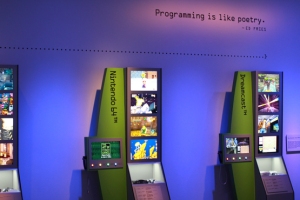
I’ve got to admit, there is something elegant about finding a way to program something in as little code as possible. I also think it was beautiful to watch Michael Jordan destroy the hopes of every team he played against. That, however, does not make this comparison okay.
Can video games be replicated easily by anybody? No. In fact, very seldom do you see a single person creating an entire video game. As a result, most people who work on video games would be hard-pressed to create an entire video game on their own. With that said, your average person is unlikely to ever be able to really create a video game himself.
As far as eliciting unique emotional states, I think the furor over Mass Effect 3 alone is evidence. But with that aside, I know that I—along with many other gamers—have grown attached to characters in games in such a manner that the path these characters embark upon has a profound emotional effect on the player.
Finally, do games have underlying themes? Again, the Mass Effect series drives home points such as equality, settling feuds and beyond. Other games’ stories often deal with concepts of good or evil. So I think it’s safe to say that at least some games do have deeper, non-literal themes they attempt to get across.
So by those standards, I think one could make a fairly strong case that games qualify as art. But I’m not done with that.
The Case Against
In talking about video games as art, one often sees comparisons to other forms of art. For example, Discovery News asks the same question and, rather than evaluating video games against some criteria for art, they simply talk about modern art being made of anything. As such, author Robert Lamb decides, it’s not so far-fetched that games could be considered art.
From the same article: “’Video games obviously can be art,’ says game designer Jonathan Blow. ‘There’s not any real debate on the matter anymore, and there never really has been.’”
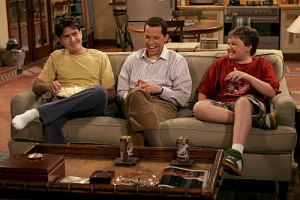
It’s amazing how terrible this show is. In fact, they have made being unfunny into an art of its own.
Of course, Mr. Blow conveniently ignores Roger Ebert, who categorically denied that video games are art and, in a wider-reaching claim, says they never will be. While Ebert later changed his stance and simply said he doesn’t get it. Ebert eventually admitted games could be art, but his initial discussion of the matter is pretty interesting and by far the most substantial discussion of the topic I could find.
That’s the interesting thing about this debate. Both sides seem to think the arguments are so self-evident that, when they write about it, they just barely bother giving reasons why.
Before I return to Ebert’s argument, I’d like to take a moment to compare video games to what is perhaps the most analogous art form: television (or film). In essence, for every Battlestar Galactica, Buffy, Firefly or whatever show you consider artistic in its nature, there are two or three shows like Two and a Half Men.
This comparison highlights a big point: even if games can qualify as art, not all games ever will. Consider, for example, Skyrim. While that game is a blast and a half and the world is beautiful, the story it tells is, well, not that great. It’s spread out over huge lengths of time, it has M. Night Shamalayan-esque plot twists, and overall, it’s got no subtext. One does not play Skyrim and realize it’s an allegory for the Iraq War (as BSG was), but rather a game about a person who kills dragons.

The leader of the Greybeards is a dargon!? Was he also dead the whole time?
(Image from Nerdapproved.)
If you wish to ignore story, what you’re left with to judge games by are the mechanics and rules as well as the graphics. While graphics may seem akin to visual art forms, the fact is that very little emotional state is elicited by the scenery, and even if it is there is no deeper message or meaning to take away.
Beyond that, however, Roger Ebert aptly points out that no matter how elegant the rules of Chess are, it would never be considered art. So calling a game art based on gameplay and visuals is just plum out.
So while one might argue that the Mass Effect series is art, I think it’s harder to argue that all games are art. But this is the assertion that many people make. To go back to the television analogy, few people would seriously assert that television is anything more than a form that can potentially be art. The only art in Two and a Half Men is how artfully Charlie Sheen managed to make an ass of himself. (Also, how artfully the show managed to drag 10 minutes of plot into 25 minutes through laugh tracks.)
But let’s go back to Roger Ebert. Ebert’s points are very similar to mine (or, more appropriately, mine are similar to his), but I think the thing he says that stands out most is that the malleability of the gaming experience is what makes the form ineligible to ever be considered art.

Inevitable emotional state of Keats’ odes (for most people): boredom. Pictured here: Keats experiencing the same state. Clearly he felt he had to share.
Ebert contends that one must be drawn to emotional states to be art (and I agree), and that by allowing gamers choices in their journey, you are not necessarily lead to an inevitable emotional state. That is the word that makes all the difference, it would seem.
You see, arguments of reader-response theory aside, when you read one of Keats’ odes, you’re drawn by his art to a specific feeling or conclusion. Gaming, if compared to print, would be kind of like a “choose your own adventure” novel. If Keats had offered, for “Ode on Melancholy” six stanzas and allowed you to choose only 3 to read, it would not be art. At least, that’s the summed up version of Ebert’s argument—with an added example. Because of this, Ebert contends, video games will never be art.
What Do I Think?
The thing is, if you’re reading this you’re probably not doing so to hear how awesome I think other people’s arguments for or against are. You’re probably, at least to a small extent, interested in what I have to say on the topic that is original.
That said, I strongly agree with Ebert on all but one major point: I think video games could someday be art. But I definitely don’t think any really qualify right now.
What I think is that video games, as an entire form, will not ever be artistic. They will probably exist in the same way that TV and film do, with the 99% being (sometimes) enjoyable but face-value drivel, and the 1% telling rich, engaging and artistic stories. But even with that said, I do not think that I would look at any existing video game—including Mass Effect, of which I speak quite highly—as art…yet.
Consider that there are still so many games released that fit into the “shovelware” category. These games are craptastic affairs that are hardly worth playing. For every big budget game that comes out that we enjoy, there are five pieces of garbage that start selling at $20.
While video games have advanced, more of that advancement is focused on creating richer environments than telling better and more meaningful stories. And while the story of Skyrim is much bigger than the story of the original Mario, that does not mean it is instantly deeper. The Twilight Saga is quite long, but nobody (I sincerely hope, lest I have to burn my degree) would consider it to be fine art.
But video games, while maybe having longer stories, are still in the end simplistic tales driven more by interactivity than by depth. You could argue that games have gotten much better with stories—and they have—but they are now, as an entire form, probably on par with storytelling akin to the Twilight Saga, not to War and Peace. Their stories rely on plot twists that would make M. Night Shamalayan blush.
Beyond all of this, however, is that malleability that Ebert talks about. Where I differ from Ebert, despite generally agreeing with him, is that you do not need to be led to a single conclusion by art. Malleability of the form is what makes gaming potentially one of the most unique and amazing mediums in which to create art.
So here is where I, as usual, tie all of this together to hopefully make some sense. Video games as a medium are likely going to continue down the same road as television and film, in which the majority is not art. As a result, the entire medium could never be considered art. I don’t know that I can put it in any simpler words than that. To call all video games art would open the door to calling every book ever published by the same name. We don’t want to go down that road, so let’s stop now.
The reason I don’t consider any existing games to be art isn’t because they are malleable, as Ebert would argue. It is because they are still, at their hearts, forms of entertainment centered on killing or racing or what have you. It is this focus away from the story—and on the gameply—that allows people to experience games and not always get everything out of it that they could.
In other words, the reason no video games are art yet isn’t because the malleability of the form leads to many inevitable conclusions. That is what makes the medium unique among other mediums. It is because the malleability of the form does not, yet, make any of the conclusions inevitable. Readers of a book do not generally skip vital characterization—accidentally or purposely—nor do those who enjoy film get that option.
But gamers do have that choice. In Mass Effect, one can go through the main story and speak to characters minimally while still completing the game. Additionally, this dialogue can be skipped, such that one never need know what the actual conversation was. The effect is the same as reading the Sparknotes version of The Catcher in the Rye and actually reading the full book.
Because of this difference, gamers are not forced to any conclusion at all. The experiences that each gamer has are so different that one cannot really say that there is any conclusion (or conclusions) at all that are inevitable. One can enjoy the Mass Effect series as games about blowing up giant space aliens, missing out entirely on the subtexts hidden within.
But Don’t Get Too Mad at Me!
Gamers value games. That is not debated here, not at all. But while the value people place on a thing does help to make the case for it being art, I don’t think you could or should argue that people valuing something is anything more than a small portion of that consideration. To do so would open the doors to letting books like Twilight enter the realm of literature.
But I think accepting that gamers value games is key to understanding why people want to call games art: they want it to be valued. For a myriad of reasons, people have rarely taken video games seriously unless they were themselves gamers. To outsiders, games look like silly and idle distractions. To those of us on the inside, it’s something that has its ups and downs, and fosters emotional attachments that are different from (and sometimes stronger than) those created by books or television.
While I do not consider games to be art, I do not either consider them to be trivial. I think the mistake of those arguing video games as art is to think that such a dichotomy exists. Being considered art will not instantly legitimize games in the world’s view, nor does not being art mean that our games have to always be considered trivial.
I am a gamer, and as you can see from my blog, I consider it a big part of me. So while I understand the desire to force outsiders to see the value of what gamers enjoy, I don’t think trying to force everyone to admit that our games are art is the right way to do it.
Was the Empire Really So Bad? Part 1: The Galactic Republic Was Awful
First, I’d like to take this time to apologize for not posting anything for almost this entire week. While I have plenty of material, I’ve been busy outside of this and found myself unable to post daily as I had previously. For that reason I’m looking at moving toward a more rigid schedule for posting so it is easier for all of you to follow this. I’ll give more details on that as they come about.
Anyway, anybody who knows me is well aware that I’m a huge sci-fi fan. They will also know that I think the Galactic Empire in Star Wars got a bad rap, mostly because any time Star Wars comes up I stand up for them. In line with my “over-thinking everything” mantra, I’ve given a lot of thought to the fact that the Galactic Empire really wasn’t as bad as it was supposed to seem. This is a multi-part argument, and it’s not perfect.
In reality, it’s a deep look at Star Wars’ forms of governments and our assumptions about them, framed by the overarching them that the Galactic Empire wasn’t as bad as we were supposed to think.
So, in what is the first part of this multi-part series, I’m going to spend a bit of time laying the groundwork for the argument in terms of some of the assumptions necessary to the arguments.
The Assumptions
The Star Wars universe is a large and complex one. While casual fans will know the original trilogy (Episodes IV through VI) and the prequel trilogy (Episodes I-III), there is much more to the universe. There are hundreds of books, comics, video games and other sources of information in the Star Wars canon.
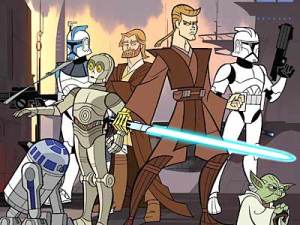
There may be plenty of great parts of the EU--The Old Republic, many of the video games and books--but anything that can produce this doesn't deserve serious scrutiny. I mean, really.
With any discussion of Star Wars comes the necessary discussion about what part of the universe you’re taking on. For the purposes of this series, I will be using what is known as G-canon (or George Lucas canon). G-canon is, to quote from Wookieepedia, “the six Episodes and anything directly provided to Lucas Licensing by Lucas (including unpublished production knows from him or his production department that are never seen by the public).” In other words, I’m going to ignore the Extended Universe (EU) of Star Wars. Any reference to the EU is more for knowledge sake than being relevant to my arguments.
Hardcore fans of Star Wars may question this decision and question my argument for the sheer fact that I’m excluding a wealth of source material.
The thing is that the six episodes of Star Wars paint the universe in terms of a very well-defined black-and-white morality. You are either good or bad, and if you’re listed as bad in George Lucas’ universe there is no reason to question the assumption. The EU authors have to work within this universe, and often their works have no grey areas, either.
With that in mind, much of the EU taking place in the same time period of the movies ends up with authors trying to show the Empire being evil and the Rebels being heroic. Because Lucas never felt it necessary to explain why the Empire was evil, these authors have elaborated upon it in terms of policies accepting of atrocities beyond the destruction of Alderaan and policies of xenophobia.
I hope that explains why it looks like I am ignoring sources that contradict my claims. As far as George Lucas intended it, there was nothing shown beyond what is in the films to indicate the way the Empire ruled. Any additions to the expanded universe that work as “evidence” of the Empire’s evil nature is really just trying to justify unexplained claims made within the movies.
The Galactic Republic Was Shitty
With my assumptions laid out, I’d like to start with the beginning of The Phantom Menace. Say what you want about The Phantom Menace, specifically about the inclusion of all the politics in it, but those boring senate scenes do at least give us some insight into what exactly happened in the Galactic Republic before Palpatine took over.
Which is to say: precisely jack shit.

The Galactic Senate chambers. If our history is any indication, there were countless fistfights on the floor of the Senate over the millennia.
The entire point of The Phantom Menace was how inept and ineffective the Senate actually was at getting to the bottom of the problems facing its member planets. People were being murdered on Naboo—and those who weren’t being murdered were being starved—and the Senate felt that the best solution was to form a committee.
This government was, at that point in time, run by corrupt bureaucrats with no interest in the people they served. It’s a plot point that is outright stated numerous times—George Lucas never was particularly subtle—and that directly led to the downfall of the Republic.
By the time we get to Attack of the Clones some serious shit had gone down and the galaxy was in a state of civil war. The fact that the Separatists broke off meant that the Republic was failing to some extent and people felt there had to be a better way. Nonetheless, they would never have seceded from the Republic had they not felt that there were unaddressed grievances. And what was the Republic’s answer to people who disagree with the way they do things? They started a war.

Why would you guys ever trust him? His last name is the same as Emperor Palpatine. Plus he just looks evil.
Granted, the whole point here is that Palpatine was subtly (or not) manipulating both sides toward war. But, even with those influences out of the picture, we can assume there were enough grievances that these Separatists felt were unaddressed to justify their secession. It is highly unlike that Palpatine, skilled politician as he was (because George Lucas made the characters tell us, repeatedly), could have caused their secession for no reason.
Let there be no doubt in your mind, then, that there had to be issues. Consider all the scenes within the Senate’s chambers and how utterly massive that room was. Then, take a quick glance at the room and notice how many separate species were present. Within the same country we cannot get our citizenry to agree on some issues that are relatively simple. This Republic was expected to rule over its constituency when said constituents were hundreds, if not thousands, of different species.
What’s most amazing about the Republic is how long it had supposedly existed before the events of the films; it’s stated that it existed for countless generations, the entire time presumably while settling the differences of its member species in a reasonably fair manner. Whatever it was that changed, the Senate clearly went from a body that was able to take action to a group of alien species standing in a room while holding their collective dicks.
But back to the war. The Republic, again, decided that the answer to people who disagree with their way of life is to start a war, for which there was a conveniently mass-produced clone army. Of course, nobody really asked why it was necessary, but it is stated that before the clones there was no standing army. This begs the question: how did the Republic defend itself in the past? After all, without some kind of military, how can the Republic maintain order and peace from both inside and outside the Republic?

The Jedi Council is about as useful as the UN at keeping peace. Plus, they put an 18 year within their ranks. Aren't there Jedi far more deserving of a spot in that room than Anakin?
The Jedi, apparently, are the answer to this. But given how easily the Jedi are mowed down by regular ‘ol clone troopers in Revenge of the Sith, it’s hard to imagine that they could serve as the only military force of the Republic. While I have always had mixed feelings about the military, even I can admit that the thought of existing without a military is like putting a sign that says “freeGalacticRepublic – inquire within”.
Also, nobody seems to have an issue with the clone army. Seriously. I mean, I think Obi-Wan questions it for a second, but then its like he never even bothered. The ethical issues with the clone army alone should be enough to give you pause about the way the Republic works. After all, these are all clones of a dangerous bounty hunter who are specifically bred to become killing machines. Beyond that, they were genetically manipulated to age to maturity more quickly and to support the Republic unwaveringly. Riddle me this: on an ethical level, how are these soldiers any better or worse than the people seen serving in the Galactic Empire?
It’s also interesting that there is no mention in the G-canon of any kind of police force. It’s implied that the Jedi are the police, but then they are also called upon the serve as a military force. I think history has shown that when your military and police are the same, you’re kind of in trouble.
What all of this means is that it was only a matter of time before the Republic fell and something else rose to take its place. The logical choice of the citizens of the galaxy would be a government that was two things the Republic was not: first, capable of taking swift, decisive action to address everyday issues; second, capable of defending its citizens from any threat. The result was the Galactic Empire.
When Padme comments in Revenge of the Sith that liberty ends with thunderous applause, did it not occur to her that maybe the people knew that they were accepting a dictatorship, but figured it had to be a hell of a lot better than the Republic? Also, when Palpatine comments that the Jedi rebelled against him and attacked him, nobody in the senate was particularly shocked. I take that as an indicator that the Jedi were at the very least not a big part of everyday life and, at the worst, widely disliked. After all, if the Jedi had a public image as peacekeepers and defenders of justice and truth, don’t you think someone would have openly questioned Palpatine’s assertion that they had turned on him? Considering the way Lucas portrays them in the prequel trilogy, it’s no surprise. They’re condescending asses who sit up in their (ivory?) tower hoping they can think problems away.
Now, I know that there is that saying along the lines of “those who give up liberty for security deserve neither”, and in our world based upon our ethics, I’d totally agree. However, when you’re talking about ruling on the galactic scale, in terms of trillions upon trillions of people, it’s a different ball game. I am not arguing that more people justifies military dictatorships, at least not directly. But I am arguing that perhaps a system of government like a republic is not suitable when you are trying to bridge the gap between thousands of species on countless planets.
I don’t think any of you are dumb. So I doubt you’re sitting there asking “how the hell does this mean the Empire is better”. But an important part of realizing that the Empire got a bad deal in how they were portrayed is to recognize the ways in which the Republic was generally terrible (read: many). The Republic was rife with corruption, had no feasible way to defend itself from threats (except for the highly unethical clone troopers) and apparently left so much of its citizenry disenchanted with its aims that they felt no other recourse than to secede. I don’t intend on making my argument by solely saying that the Galactic Empire is bad, but the Republic was worse. I think there is genuine evidence that the Empire did more good than bad, but looking at the Republic can give you an idea of how disillusioned the galactic citizenry probably was.
Look for the next part of the series, entitled The Empire Is in a Bad Neighborhood.
When Beef Isn’t Beef (But It Really Is) Everybody Loses or: ABC News Wikipedias “No True Scotsman”, Misses Point, Slanders Big Meat
It’s a sad thing when I hear about the latest media shitstorm from Facebook. About a week ago I noticed a couple posts about pink slime pop up in my feed. These posts indicated that the ground beef I so love had been, for some time, contaminated by some other and disgusting product in a conspiracy by Big Beef to save money and screw me, the consumer.
Terrified that I was now eating 65% oats and 35% rat anus, I pictured evil beef barons putting raccoon’s they found as roadkill and sewer rats into a grinder while cackling maniacally. But Scott, I said to myself, you’re kind of a journalist now, what with your opinion blog, and you have a responsibility to be well-informed before you tell people how you feel.
Well, me, I’m right (surprise), and I decided that I should probably exert the minimum of effort before writing a scathing condemnation of Big Beef and at least read the Wikipedia entry for it. It is, after all, what any major news outlet would do, right?
At this point, having read the whole article, I thought I must be missing something about the outrage. This stuff is just beef that didn’t make the cut (haha! And my friends say I suck at puns. Actually, I said that and they agreed, but now who is laughing?!) and was ground to be used that way.
Suddenly I found myself overcome by this strange feeling. At first I couldn’t identify it, but then I realized what it was: I was ambivalent. After hearing what little I had in regards to pink slime, I had no feelings on the issue. This will not stand.
And so, encouraged to find some kernel of truth, plant it and let it sprout into a wonderful tree, I read about pink slime for hours. And then, still unsure of how to feel, I read even more. Eventually I hit a point where it felt like all I was reading was people saying the same thing in different ways. I had found all the facts and now it was just opinion.
Now, I hate to let everyone down, especially with me being a liberal and all, but I’m going to stand up for Big Meat. Seriously.
I guess you’ll want to know why. Well, it’s simple. Big Meat, specifically Beef Products Inc., was the victim of a vicious, well-planned smear campaign. This campaign took the information and twisted it in such a way that there was no way anybody who saw the initial ABC News report could have walked away without hating BPI for their transgressions.
In the end, we all stand to lose. BPI may lose its business, ABC News lost what little journalistic integrity it had (there wasn’t any to begin with, but I feel like now they’re in Fox News levels of integrity), and the consumers have been misled. You can file the case of pink slime under B for “bullshit”, and you can stick it right next to other over-hyped public health scares that turned out to be bullshit, scares like living under the power lines.
What Is Beef?
Before I can even talk about the smear campaign, you have to understand where you have been lied to. I understand many of you will probably not be swayed by this post, but if you continue to do research you’ll find that there was no “case” here to begin with.
Anyway, one phrase you keep hearing is “100% beef” or “beef is beef”. We keep hearing those words, but when it comes down to it what qualifies as beef is the heart of the matter.
You can go to beefisbeef.com and see some of the myths about pink slime. As always, however, you have to be careful about your sources. That site is run by BPI, so they obviously have a vested interest in it. (Here’s a tip: their resource contains more truth in one sentence than the ABC News investigation in its entirety.)
Anyway, what qualifies as beef? What is beef, according to Webster’s Dictionary? It is “the flesh of an adult domestic bovine (as a steer or cow) used as food”. Okay. But the dictionary definition doesn’t matter much, they don’t have anything to do with how food is labeled or defined.
That’s more the domain of, say, the UDSA. Those guys know their meat and where to put it, so what do they have to say about beef? The USDA defines beef as “meat from a full-grown cattle about 2 years old.” Well shit, that’s basically the same thing as Webster’s definition.

Despite what this image shows, once killed cows do not separate into neat, colored shapes. It is quite messy.
Surprised? Don’t be. Beef is the meat from a cow. There are varying grades of meat, cuts of meat and all of those other things, but the simple fact is this: for it to called beef it merely has to come from a cow. It’s that simple. But then, I’m guessing you didn’t question that, did you?
What Is Pink Slime?
Alright. Well beef is an easy one. But all of the hype about pink slime portrays it like it’s not actual beef–that is, not the actual flesh of a cow. Clearly they wouldn’t lie to us. Big Beef are the ones foisting their low-grade slop onto us.

This is NOT pink slime. This image, the top result for a Google Image search for "pink slime" is actually mechanically separated chicken. That's what's in your chicken nuggets. It may look nasty, but god damn if it isn't delicious.
What is pink slime? Pink slime is the nickname given to “lean finely textured beef” or “boneless lean beef trimmings”.
As an aside, had the media used that name in its smear campaign I’d imagine there’d be less outrage. After all, the name pink slime is pretty disgusting. The name pink slime comes from the description of one Dr. Gerald Zirnstein—a microbiologist who worked for the USDA in 2002. In case that name sounds familiar: he’s the “whistle-blower” that informed ABC News about the issue. Convenient that he happened to coin the disgusting name of the stuff, then happens to be on the news about it later. Yeah, that’s not fucking suspicious, guy.
But anyway, pink slime is the result of a few things. First, when they kill that about-to-be-delicious cow and start to cut it up for meat, there is a lot of stuff that doesn’t make it. You cannot just cut the beef up according to the picture here and then have your cuts. There are other things in there, and something has to become of them.
Some of the scraps aren’t usable because they come from near the surface of the skin or near various…orifices…of the cow that aren’t clean. As such, they need to be, say, disinfected, before they could be served to people. If only somebody could think of a way to use these scraps, you’d have to disinfect them to be safe for consumption, but then you could use every little bit. That would save money and produce more meat. Interesting…
Pink slime is, according to Wikipedia, “finely ground beef scraps, sinew, fat and connective tissue”. These scraps are put into a centrifuge and heated, separating the fat from the good stuff. It is then ground and run through a process where it is introduced to ammonia gas to kill off all those nasty food-borne illnesses.
Make no mistake, though, that pink slime all comes from a cow—making it all beef. The process stated above was created by the food industry because otherwise those scraps I described had to be tossed out or used in other ways—such as dog food or cooking oil. (Interestingly, nobody would have an issue with eating cooking oil that is, in essence, partly pink slime. But get that shit in your beef and it’s wrong?)
(Side note: read up on mechanically separated meat. It’s in everything and it is goddamn disgusting. Plus, Cracked has written an article with some interesting facts about the food we eat. Hilariously, they covered pink slime well before ABC News.
Let me reiterate a point that you’ve heard: beef is beef, pink slime comes from cow meat, thus it is beef. This point seems to be a contentious one and I simply do not understand why.
The Uproar

We demand that our 100% beef product have labeling to indicate that it is two different kinds of 100% beef product in one package! Who's with me!
Most of the public attention drawn to pink slime came when ABC News aired a report that showed 70% of ground beef sold in supermarkets has pink slime. Actually, they didn’t really so much show it as they did “state it without giving a source.” From what I can tell there are two major arguments against pink slime. The first argument is something along the lines of either “it’s disgusting” or “it’s not beef and the packaging is lying”. The other argument surrounds supposedly dangerous chemicals said to be contained within pink slime.
I am, honestly, not even going to justify the uproar with an in-depth breakdown of what’s wrong with it. That is how stupid this outrage against Big Meat really is. Instead, I’ll sum it up with a couple convenient bullet points:
- The defense BPI is mounting is hilarious in that it is so simple, so ingenious, but also so destined to fail. Their retort to this mess: “Beef is beef.” They do not feel they need to label anything because the meat going into your ground beef is, and has always been, beef. I have never said beef so much in my life.
- The argument that ammonium hydroxide should be labeled is moot, because it is a chemical used in the production process, not an ingredient. The FDA monitors chemicals used for this purpose and compiles them into a convenient list of chemicals that may come into contact with food but that are safe for consumption. See that list here. So yes, even the ammonia argument people are making is kind of pointless. Ammonium hydroxide makes its way into so much of our food that to remove anything that has it would leave supermarket shelves empty. Example products include jams, jellies, snack foods, baked goods, etc.
Let me put this another way: there has never been a case of illness in which the exclusion of pink slime would have prevented said illness. Seriously. If anything our food is safer for it, since E. Coli is still a real problem and the rest of the meat that isn’t pink slime goes through no such disinfectant process. While normally I would not suggest reading information from the company in question, the defense mounted by BPI is pretty free of propaganda, unlike the arguments against pink slime. I’m looking at you, fucking Diane Sawyer.
The ABC News “Case”
The true story behind pink slime, the one that has seemed to get no attention at all, is the downright irresponsible and slanderous “investigation” by ABC News. As I suggested, their investigation seems less like a journalistic foray into the seedy underbelly of Big Meat, and more like they had a slow news day and asked an intern (who happened to be reading Cracked.com) for an idea.
Within the first five seconds you have Diane Sawyer hilariously using the term “whistleblower” to describe their source for this investigation. Let me make it clear off-the-bat that there was no whistle-blowing involved because there was nothing to report. The inclusion of pink slime, while not highly publicized, was not hidden or discreet. It is well within the standards of FDA and USDA regulations. But this is their first step, and an intelligent one at that. That said, just because the American public isn’t fully aware of something doesn’t make it a scandal.
This “news” segment resembles less anything like journalism and looks more like the episode of South Park where the boys made a news show. The tabloids were blushing when ABC News issued this report, realizing they’d finally been outdone. If Diane Sawyer were implying any harder her head would have exploded, coating the screen in pink slime just to hammer home how disgusting we’re supposed to think it is.
Let me be even clearer here: ABC News did jack shit for research. If they did, they then promptly ignored it in favor of sensationalizing this story. For me, this issue took many hours research to really be able to write about. I did not slap this post together in ten minutes and call it a night. Rather, I considered it a process. First, I read as much as I could. Second, I considered the sources of the information to take biases and agendas into account. Third, I formulated an outlook on these events that seemed in line with fact. That is two more steps than ABC News did for this segment.
Instead of information, we’re provided a parade of us countless people who are quick to tell you how evil pink slime is, how it is not good for you and isn’t beef. The parade pauses, briefly, so that we can learn about how pink slime is made. I’m honestly surprised they provided that slick animation of the process. I wouldn’t have put it past them to show a picture of a cow shitting as they described the process, just to reinforce that pink slime is bad.
The video shows, numerous times, people saying they wouldn’t feed it to their children. This video is, in terms of composition, a masterpiece of propaganda. We see someone wrist-deep in beef as the words “real beef” come up, and we get images of industrial factories when they use pink slime. It’s a classic trick. In fact, they use pink slime’s actual name all of once in the entire segment, and even then I feel like the volume was turned down and he mumbled it lest we call it anything other than pink slime.

"You know, guys, Lean Finely Textured Beef just doesn't have the same slanderous ring to it as pink slime."
And what a powerful name that is. Make no mistake, had they used its real name throughout the segment opinion may not have been swayed so easily. I would argue that, out of a sense of journalistic integrity, they owed it to the viewers to use the real name, rather than pink slime, the entire time. That word alone is propaganda. Is it any coincidence that a disgusting term for this stuff was coined by a guy who decided to go on the news to get rid of it? If your answer is anything but yes, you are tragically naive.
But I think, beyond everything, they portray the internal struggle at the USDA amazingly well–at least in terms of suiting their purpose. ABC News would have us believe that this was a case of a higher-up corrupted by Big Meat versus the little guy, standing up for the consumer. They link the move that the former undersecretary made from government service to working with the meat companies and imply corruption. While they openly say that the move was legal before, they point out that ethical standards would not have allowed it now. Make no mistake, dear readers, politicians that we put in office repeatedly have made far less ethically sound–but legal–moves and never been put under such scrutiny for it.
Now, I understand this was a short segment, coming in at just under three minutes, but ABC News spent more time painting this as a crisis and corruption than describing what pink slime is. More of the video is devoted to people telling us how disgusting it is than people telling us what it is, and that is telling. After all, any news outlet with the slightest hint of integrity would have made an effort to inform us of both sides of the topic. Instead, ABC News opts to skip fairness and go right to the part where their ratings skyrocket because they manufactured a health crisis.
Then you get the follow-up video:
Having done their damage, ABC News continues in the trend of irresponsible reporting by opening up with an organic grocer talking about what his view of meat is. Now, I may be a little crazy, but doesn’t it seem like an organic grocer would, you know, have an interest in portraying the stuff you get in the supermarket as being disgusting? Isn’t that the kind of hidden agenda that the reporter should consider before just shoving the guy onscreen?
Beyond all that, what you’ll note is suspiciously absent from both reports is an opposing viewpoint: someone who wants to say that hey, guess what, meat is meat, beef is beef, and this stuff is both of those.
Oh wait, they totally did. But in their fine tradition of journalistic excellence, they show Janet Riley, VP at the American Meat Institute, clearly pissed right the fuck off. I cannot overstate how hilarious and disheartening their choice of that part of the conversation really is. You see Ms. Riley, clearly upset, basically yelling at this reporter trying to get it through his thick skull that pink slime is fucking beef.
Short of drawing devil horns on her and implying that she is sexually promiscuous, I don’t know that ABC News could have done much more to paint her as the least credible person they’ve ever interviewed in the history of interviews. They make her look worse than Richard Nixon, for christ sake.
The desperation and frustration on her face is clear. To the average viewer it would look exactly like she had something to hide, or perhaps that her discomfort with the situation was a last-ditch effort to cover up the horrible truth of pink slime.
Instead, I have this image of the ABC reporter calling her and, for forty minutes, asking the same goddamn question: “Why aren’t you relabeling the meat?” in the hopes of eliciting from her the exact reaction we see in the video. The editing on that part is pretty clear, when he is sitting in that sweet video conference room and then we cut to her, it’s a disjointed, jarring cut. He did not pick up the phone and connect with Ms. Riley already that frustrated. He provoked her.
It’s the frustration you’d feel if someone points to your dog and says “That’s a cat.” You try to explain to him, repeatedly, that it’s a goddamn dog, but he won’t listen. That, my friends, is exactly what Ms. Riley was trying to do to ABC News, but they just wouldn’t stop insisting that goddamn dog was really a cat.
Conclusion
There is so little actual information about this product, to say nothing of the debate, contained within the report that I would hesitate to use the word informative at all. What ABC has shown us is a collection of interviews with people who are telling us what ABC wants us to think: this stuff is disgusting. This stuff is not meat. That dog is a cat.
When you get down to it, that is what ABC News has done here. They have managed to redefine beef. They have taken beef and with all of the force they could muster said “that’s not beef.” They have called a dog a cat and we, the American public, have bought it.
I don’t know that it surprises me that we did, either. This is not some small-time news station, but a national outlet. ABC clearly put their best and brightest behind this cluster-fuck of an investigation, and they produced a slick piece of propaganda.
Before I end this, I want remind everyone here that while Big Meat is portrayed as faceless and callous, and as being in bed with the government to pass off substandard product, there are faces behind this. In the wake of ABC’s blatant display of journalistic slander BPI closed down three of its four planets. Because of this report 650 employees of BPI are out of a job. If production doesn’t resume soon, those 650 people will be permanently unemployed.
It is not their fault they worked for that company, nor should they suffer because of the media outrage.
And in case you are wondering, many of the BPI employees have come out in support for their employer. I’m sure part of that motivation is to save their jobs, but from what I’ve read some of them just don’t seem to understand why BPI was targeted this way. Beyond that, many of them have come out to say that they would, and do, eat product containing pink slime. Amazingly, the news hasn’t bothered to tell us the story of the 650 plant workers out of a job because ABC got a hard-on for taking down Big Meat. Instead, we hear about the heroic housewives who have saved their children from pink slime at school and supermarkets. Bless you all, your quest is an honest and noble one.
ABC news has created the next “vaccine causes autism” scare. (By the way, if you believe that vaccines cause autism, I’m sorry. Then again, if you believe that your children never stood much of a chance anyway–with or without a vaccine.) They have instituted a full-on firestorm targeting pink slime, a firestorm based upon half-truths and misrepresented information.
But I think the final point is this: this product was cheap. As a result, you can bet your Sweet Baby Ray’s that prices on ground beef and processed beef products are going up. That is to say nothing of school districts who now have to replace all of their beef with different, more expensive beef because of the outrage. While some may argue that it’s a small price to pay for better food, I ask you this: do you honestly think you can taste the difference? The same burgers your mouth was watering over last summer are the same ones that you’re now deriding as unfit for consumption.
Oh, the winds of change.
Dear Anonymous, You Are (Scary) Douches.
Dear Anonymous,
You know, I used to hear a lot about you guys. Of course, that was a few years ago when people actually thought you might do something good; back when you had any kind of credibility.
I realize that by writing this letter, I make myself a potential victim of your attacks. I sincerely hope that I am small enough in scope that you don’t, because while I can joke about it, I really don’t want death threats. And while I am extremely harsh on you in this letter, I think one thing you should take away is this: I would love for you to actually impact some change in the world. You just don’t.
And while to those reading this may wonder if I’m actually afraid of retaliation, let me say: yes I am. I thought long and hard before posting this if I really wanted to even take that chance, as miniscule as it is. After all, it is well within Anonymous’ patterns of attack to give out the addresses and phone numbers of people you don’t like.
And don’t pretend it goes any deeper than that. You are not freedom fighters, you are not heroes. You are cyber-bullies who decide they don’t like someone for some reason and then take action against them. If someone within your ranks decides this letter is enough of a threat to your image, I very well could become the victim of your attacks.
Sure, you’ve done some cool stuff. You brought a couple of internet predators to justice, which is more than most individuals can say. You have even defaced or managed to take down the websites of organizations with whom you disagree and who are, in general, pretty uncool.
But I began to ask myself a question: what are you guys fighting for? Ostensibly it looks like free speech. After all, Operation Titstorm was about fighting against censorship. I don’t disagree with your ideal there. Only one problem: you attacked the website of a white supremacist a year earlier. Why? Because you didn’t like that he’s a racist. Now, correct me if I’m wrong, but weren’t you just censoring him?
I mean, that’s what it is, isn’t it? You attacked his website because you didn’t like what he had to say. It has nothing to do with freedom of speech in that case, because he was exercising that freedom. How about your heroic attack on McKay Hatch, founder of the No Cussing Club. That kid is as non-threatening as they come, after all he’s trying to do is stop swearing. He hasn’t started some huge movement that murders people for swearing. No, the damn club is for kids who don’t like swearing and don’t want to do it. What threat did he pose to you? Were you afraid he might start writing gently-phrased, cuss-free letters informing us all of why we should stop swearing? Actually, when you put it that way, he had to be stopped.
But I guess that’s censorship. And since he’s a censor he must be an enemy. So why not put a teenager’s address and phone number on the internet, where you all could so valiantly send him hookers. Boy, the look on his face must have been priceless when he realized that school club he started was going to cause you all to threaten his life. You sure showed him.
So really, again, the root of the issue is things you don’t like and things you do, isn’t it? Sure, some of the things you don’t like are pretty clear-cut in their negativity, but then some aren’t. I understand that in some convoluted way you justified your attack on Sony. But were the threats and harassment of the employees and their family justified? After all, they just work there. I doubt many of them made it their life goal to destroy your freedom. Hell, most of them were probably just trying to collect a paycheck.
What was the issue at stake there, anyway? I mean, to most rational people it would look like Sony was defending its intellectual property. It may have become a little overzealous, but then again it is their property to enforce the rules with as they please. I understand that you call piracy by the name freedom. I suppose, then, that you’re not in favor of the artists, actors and everyone else who works on a project getting paid? There won’t be anything left to freedom once you guys have your way, since all the artists will have moved on to fields that, you know, pay something.
But then, how do you even decide what you don’t like? You don’t have any leadership and you have no stated goals. You are a loose collection of people under some banner. So, then, how can you really stand for anything?
And don’t try to argue that some of these acts were done by splinter groups. It’s called No True Scotsman. Being that you don’t have any formal membership and no leadership to actually say who is and isn’t Anonymous, anybody and everybody is. This is part of why you are so dangerous.
But let’s forget about who you attack and why, for now. I doubt I’d ever understand the logic behind that. Let’s talk about those fucking Guy Fawkes masks.
Here’s what I don’t get: no part of the Guy Fawkes mask is supposed to be a good thing. Brief history lesson for those of you who don’t know of Guy Fawkes in a context outside of V for Vendetta: he was a Catholic who hoped to bring his religion back toEngland. He and a few others got together in the hopes of bombing Parliament and starting a rebellion that would bring Catholicism back.
Seeing as you have issues with Scientology and are all in favor of free speech, an outsider would think you would not like Guy Fawkes for the simple fact that he hoped to push his religion upon others. Englandhad made its choice, and while the government at the time wasn’t cool with Catholics (well, that may be an understatement), it certainly didn’t justify dismantling that government in order to make Catholicism the only religion. This guy used the same tactics as all the terrorist groups of today. Guy Fawkes was (and, I believe, still is on occasion) burned in effigy. He is not a hero. We do not burn heroes in effigy. Guy Fawkes was hardly an acceptable figure until some books painted him as an action hero a century after he died.
But most of you probably only know of Guy Fawkes in reference to the character V in V for Vendetta. I’m going to over-generalize here, but since you operate mostly in cyberspace and have a specific “skill” set, I’m going to just imagine you’re more at home with comics than history.I find it funny that you would choose that image to represent you. I guess the whole “identity not being as important as the message” part makes sense (assuming you had a coherent, consistent message to spread), but the rest doesn’t. V for Vendetta is as much condemning anarchism and the barbaric terrorist acts V uses as it is condoning them. V is not meant to be a stand-out hero, he is meant to exist in an area of moral ambiguity. As with all literature, the message is not a clear-cut one. That is a message you all seem to have ignored, instead taking that mask as your own to somehow symbolize righteous dissent. You are not righteous, and you do not speak for the majority.
Then there is your so-called “war” on Scientology. How’s that going?
Let’s look at your “Message to Scientology” from 2008. Skipping the boring stuff, here is the message in terms of what you were going to do to them:
“Anonymous has therefore decided that your organization should be destroyed. For the good of your followers, for the good of mankind–for the laughs–we shall expel you from the Internet and systematically dismantle theChurchofScientologyin its present form. We acknowledge you as a serious opponent, and we are prepared for a long, long campaign. You will not prevail forever against the angry masses of the body politic. Your methods, hypocrisy, and the artlessness of your organization have sounded its death knell.”
Hmm. That’s pretty serious shit there, guys. So, let’s make a checklist of these threats and take them one-by-one, shall we? For the laughs.
1. We shall expel you from the Internet and systematically dismantle the Churchof Scientologyin its present form.
Well as of today (April 9th, 2012) the Scientology website is up and running, with no apparent issue. A few Google searches as well as a browse of the articles related to Scientology, Anonymous and Project Chanology on Wikipedia make no mention of activities past 2010. Seriously, it seems like most of the activity was in 2008 with a little in 2009.
But please tell me how you are going to dismantle the Churchof Scientology. I understand that you will expel them from the internet (you haven’t), but how does removing their internet presence do anything other than hinder them in the long run. Plus, most of your “attacks” are just DDoS attacks that, at your best moments, managed to take down some sites for a few hours. That is hardly “expelling” them from the internet.
Let’s point out one other thing, too. The numbers for self-identified scientologists were falling well before you guys declared your war. In fact, in 2001 that number was 55,000 and in 2008 it was 25,000.
I’ll admit that I hate Scientology as much as the next guy (we’ll get to that), but your “war” on them hardly seems purposeful or well-planned.
2. We acknowledge you as a serious opponent, and we are prepared for a long, long campaign.
This is the cop-out line, guys. This is the part where you admit that you’ll probably not do anything significant to impact their numbers, but where you can go ahead and take credit for the already falling numbers (see above) in five more years. This is your loophole when you realize how useless you have been.
3. You will not prevail forever against the angry masses of the body politic.
I didn’t actually take a poll (mostly because I’m lazy), but I bet that if I asked 100 of my friends/acquaintances what “Project Chanology” is that about 10 of them would know. If I asked the same 100 people about Scientology they’d probably say they don’t like it, but what are you going to do. There is no angry mass, there is only angry Anonymous, righteously indignant at the fact that something they don’t like has stood for so long despite their ever so powerful attacks.
4. Your methods, hypocrisy, and artlessness of your organization have sounded its death knell.
If that is true for Scientology I wish it were true for you, Anonymous. Unfortunately for everyone Scientology and you still exist.
Anonymous, your ideals are inconsistent. Were any of you to sit down and actually look at what you stood for, not in terms of the words you say but in your acts, you’d find that you stand against now what you once stood for.
Anonymous, you are impotent. Your attacks consist of random DDoS attacks that hurt websites for minutes at a time. If you’re lucky, you take someone down for hours. At the very worst of it, you manage to get some fake death threats and hookers delivered. Congratulations, you’re going to destroy Scientology by inconveniencing people.
Your impotence stems from your decentralization. The very thing that you think gives you power is the very thing that strips it from you.
Worst of all—beyond everything else—you are just as malevolent as those you so often stand against. You employ the exact same tactics the Scientologists do: you bully, you release public information and you threaten violence. You are a cancer upon every cause you stand for. You are the terrorists of the internet. While you may well at one point have deserved a redress of your grievances, your tactics have long since made that point moot. Now the only proper action is to ignore you, lest we feed the fire.

I think the politically correct term now is "high-class escort". This one may not be high class, but I wouldn't turn her down if it were free.
Anonymous, keep it classy. I can only hope that my blog with a lifetime total (as of this post) of 500 visitors will infuriate you so much that you’ll post my personal information. I did, after all, call you impotent. You know the best way to prove you’re not impotent? Find my address and send me hookers. Really, really expensive ones. Charge them to Scientology. That way you show everyone. We’ll all have learned our lessons then.
I will eat my words (and any pizzas you’d like to send me at someone else’s expense), Anonymous, if you can manage to prove that you have done one thing that has positively and tangibly altered some social norm or law, and that you did so without hurting any innocents in the process. (Please note, the key there is the lack of collateral damage. You always seem to hurt someone else while you’re trying to be some positive movement.) Taking a website down for 15 minutes doesn’t count. I want proof that the world is better for having you; the world I see is frustrated by you but too afraid to tell you to leave.
For those of you who want more details about the wonderful things Anonymous hasn’t done for us, here are a few resources about their douchebaggery:
Timeline of Anonymous’ impotency.
Anonymous dislikes Sony, gets nasty.
Anonymous breaks laws, FBI does their job. Anonymous dislikes.
(I think my favorite part of the above YouTube video is the guy who says, and I quote: “Anonymous is not a group, it is a thought, an idea, a spark to the flame if you will.” Though, then there are the guys talking about the New World Order and how they love Anonymous. Gives you a real good idea of the support they get.)
My Cover Letter
In my effort to become the vice-president of any company, I have drafted this cover letter in response to an ad on monster.com for a position as Vice President of Construction Management.
How Facebook Ruined Social Relationships
When I was in the last semester of my high school career Xanga was in its dying days and MySpace had long since become little more than the Mos Eisley of the internet. This placed Facebook in the coveted position of hottest social networking commodity. It was a huge fad amongst the graduating class, an elite status symbol because you had to have a college e-mail address with a school already listed on Facebook to even sign up for an account. Those with accounts would sneer “Oh, you’re not on Facebook yet?” to those of us that hadn’t signed up yet.
Now, six years after its founding and five years after I was introduced to the site, I have to say that I cannot help but feel that Facebook has utterly and completely ruined social relationships.
The Good
Like most things, I’m not 100% committed to my belief that Facebook is an evil that needs to be purged. It provided (and perhaps still provides) beneficial social networking options to a large group of people. The ability to quickly find friends, post on their wall or send a private message cannot be understated. Not everybody wants to sit online with an IM program (which by this point, seem to be fading into obscurity in favor of texting) or sift through e-mail hourly to stay in contact.
For the original market of college students (once Facebook expanded beyond Harvard), the service was perfect. Keep in touch with friends from afar without having to keep a catalogue of e-mail addresses and phone numbers immediately on-hand. It was the college student’s dream. I’ll be the first to admit that I managed to keep in contact with people toward whom I might not have normally devoted the effort.
All-in-all, Facebook—at some point—definitely provided positive benefits to the subscribers. It may still do so.
Where It Went Wrong
Clearly, I have a few gripes about Facebook.
To begin with, I never really agreed with Facebook’s expansion to a wider social network. I understand the reasons: a larger audience means more ad revenue, and thus more ability to expand the service with useful features. Nonetheless, the expansion to high school students—and then to anybody—always felt a bit ridiculous. MySpace’s allure (and downfall) is that it drew everybody to it, and the general lack of restrictions generally meant that you were dealing with both real friends and the dregs of the internet. Keeping Facebook limited to those with a valid college e-mail was a kind of quality control, ensuring that the Greedos of the world didn’t bring down the quality of content.
But beyond the idea of letting “just anybody in”—as though Facebook were some prestigious country club—there were other repercussions: a shift toward a general audience meant a shift in what features were tuned for what. As I pointed out, Facebook began as a great, minimalist way to keep in contact. It wasn’t about how great your profile looked, but just that you had it and could stay in contact. As the market to which Facebook catered expanded, so did the features list. Eventually it ended up where we now find ourselves, at a point where people are obsessively logging on to play Farmville (that’s still a popular thing, right?) and check the latest status updates while ensuring to post hundreds of useless links and videos.
The introduction of the Facebook status was, arguably, the point where Facebook was less about staying in contact and more about mimicking features of MySpace while avoiding all the pitfalls. With the Xanga trend already dead and blogs becoming more limited to serious bloggers (and not whiny teens) we still needed a way to share with our friends what was going on. What better way than forcing users to do so in short, character-limited sentences?
Sure, this is only a short recap of some of the history of Facebook and the various implemented features, but what features aren’t so important as the impact they have had.
The Social Impact
Overall I find only one conclusion I can logically draw: Facebook has fundamentally altered the way that we, as people, interact socially. To this I doubt any sane person would object. Where I go one step further is to say that this impact is mostly negative.
One of the most fundamental features of the new Facebook is the status/feed around which the website now revolves.
You might ask yourself why this is so bad. The question I have is, how often do you flip to your feed and find yourself not giving a damn what the people who show up are up to. And it’s not because of those people; it’s because of what they post. The Facebook “status” as a method of sharing has been bastardized to the point of being nearly meaningless.
The status is the outlet for passive aggression, outright aggression, emotional catharsis and inane updates. For every entry in my feed that presents me with interesting and relevant information about someone in my network, I am inundated with at least five updates that inspire me to invent time travel to save myself every second I have spent and will ever spend reading those updates. I’m sorry that your boyfriend is a jerk, but quoting sappy lines from an episode of Grey’s Anatomy on your wall makes you look pathetic. Quoting Dashboard Confessional is equality pathetic. Nobody cares that Chris Carrabba’s lyrics speak to you. There, I said it.
In a real-life context, the uselessness of the information provided in most status updates would absolutely offend me, as the person sharing that information must assume that my time is worthy of quoting hackneyed song lyrics and sitting around listening to your doe-eyed stories of just-barely-post-adolescent heartbreak.
To be fair, we’ve all put song lyrics in our status at one point, I just think that most (sane) people regret it and try to avoid it later. It’s just exceptionally bad with certain repeat offenders. I have had to block numerous people from my feed for becoming what I refer to as a “fortune cookie.”
Facebook’s negative impact doesn’t stop with the status update. I’m hoping I’m not alone, but I absolutely dread my birthday because of Facebook. First, because I’m too lazy to tell them to stop e-mailing me, my e-mail inbox gets a deluge of notes that I’ve had a post on my wall. But the bigger of the issues is the compulsion I feel to read my wall to see what lost acquaintance pops out of the woodworks to send me hardly-sincere birthday wishes. Oh, hi Cooper, we haven’t talked in two years, but thanks for looking at a sidebar on your homepage and noting that it’s my birthday.
It’s this lack of sincerity embodied by Facebook birthdays that is indicative of the problems of Facebook as a whole. While I understand that social conventions allow for a Facebook wall post to replace a phone call, how much harder is it to take the time to call me and wish me a happy birthday? Even if I’m not there, you can leave a voicemail. How many of us wouldn’t mind waking up to 30 voicemails from good friends deciding to wish you a happy birthday. I’d certainly be more willing to spend 30 minutes sifting through my voicemail than 30 seconds clearing out my inbox and trying to see if anybody that matters has written something on my wall recently.
This lack of willingness to use personal means of contact isn’t limited to birthdays. Just recently I had a friend on the phone and he happened to ask if I was going to his house party. The tone in his voice indicated I should have already known about this, though I honestly was clueless to which party he referred. Then he revealed he’d shared a Facebook invite. I, of course, hadn’t heard about the party because I don’t compulsively check my Facebook invites anymore. Again, a quick text or call in advance would have informed me and been significantly more personal.
As each passing day distances me just a little further from my college days, I’ve found that the way I view social relationships has changed disproportionately quickly. In college, I was checking my event invites frequently. Hey, party this weekend? You bet I’m going to RSVP for that. Sure, the guy hosting the party just invited his entire friends list (and I barely knew him), but it was college and that was the kind of passing acquaintance that was acceptable. As an emerging member of society-at-large, I’m beginning to wonder at the fact that I still get event invites from people with whom I haven’t spoken since graduation. Yes, we can save the time by sending out the invite, but when you get an event invite that’s been sent to anywhere from 40 to 500 people, do you really feel that the person hosting the event even cares (or would notice) if you’re there? Why am I going to bother showing up for your party if it’s clear you don’t care enough about me being there to pick up the phone?
What This Really Means for Social Networking (Both Online and Off)
For anybody who has played The Sims, you’ll probably know that maintaining friendships was absolutely necessary for your sim’s happiness, yet simultaneously incredibly difficult to maintain those relationships. As you had a lot of friends, you had to create a ridiculously rigid routine through which you maintained those relationships with visits to the house or phone calls. It just wasn’t easy. And this is a game that is supposed to be fun.
As aired my grievances with Facebook, you may have noticed a trend emerging: all of those things are just plain easy. Everything Facebook does is designed to easily keep in contact and show interest in other peoples’ lives. The problem with social relationships is that they are necessarily difficult. They are about give-and-take, and the best relationships will require effort from both parties. That’s the point, because nobody wants to invest himself in a relationship to which the other person contributes nothing.
It just isn’t possible, then, to truly maintain a strong relationship with only Facebook. And yet, it is increasingly becoming the surrogate to other methods of interpersonal contact. Certainly, those close friends of ours we will always call or e-mail or stop and visit. But for the more casual acquaintances, you simply cannot put in the effort required to maintain a meaningful relationship with Facebook. You may question this assertion, but think hard. How close are any of us with the friends on whose wall we occasionally post? How many token gestures, like “we have to hang out this weekend” do we all throw out to simulate effort where there truly is none. The plans may fall through, but at least we made the (hollow) gesture of trying to plan something.
Romantic relationships are uniquely impacted by Facebook as well. For the majority of college I was in a long-term relationship in which Facebook played a role. My biggest regret is that I ever allowed that to happen. Whether or not your significant other is in your profile picture should not matter, nor should the “relationship status” part of your information have any impact on your relationship. Ever. Yet, the idea of being in a relationship on Facebook has spawned the phrase “Facebook Official” as some meaningful moniker for relationships, almost as if it is more meaningful to be listed in a relationship in your profile than to have taken the step to acknowledge that you are in a monogamous relationship in person.
Not to mention the way that people use Facebook as some precursor to romantic relationships. I’ll admit, grudgingly, that I’ve Facebook stalked, but it is a bit beyond creepy when put into context. As we get to know a person, we may comb the profile for useful details about interests as a way to measure compatibility and to spark conversation. In fact, I’ve used Facebook chat as a way to get in contact that has led to a relationship. None of this seems to bother our collective conscience as an invasion of privacy.
I know the counter-point here is that you can moderate who sees what information and you can choose not to display certain interests. But how is that really any different than a real-life relationship. If I began dating a woman, only to find out that she had been following me around for some time to learn what I’m interested in, I’d be mortified. I’d probably also file for a restraining order. Yet in the relative lawlessness of the internet, Facebook Stalking is almost a pre-requisite to dating.
To recap (again): the most disturbing part of Facebook isn’t that it tries to make social networking easy, but that the expectations for easy relationships translate into expectations in the real world.
And Yet…
The problem is that many of the people reading this post may, in fact, have come from my Facebook. The fact is that using the integrated feed update would be to pass up a great opportunity for self-promotion. But more than that, I have an active Facebook account that I do check semi-frequently. I even post on friends’ walls.
This is why I find myself in a quandary, as I hate the impact Facebook has had and yet cannot escape the fact that it is so inextricably integrated into our collective social consciousness. Were I to deactivate my Facebook, I’d find myself in a self-imposed social isolation similar to cancelling my phone service. Online social networking has become intrinsic to our society, and for all the problems Facebook provides, even I cannot just quit.
For the longest time, I have actually been a proponent of the ability for the internet to provide meaningful social interaction. I love instant messaging because it provides the ability to multi-task and still have meaningful conversations. It is a happy medium between e-mail and personal interaction, requiring effort and thought to participate, but without the lengthy reply times of e-mail.
Which is why I wonder at the reaction the masses had to the invention of the telephone. In a time when stopping by your neighbor’s house or going to a local pub or common house was the preferred method of social interaction, I can only imagine how vehemently some onlookers must have spoken out against the impersonality of the telephone. “You cannot see them!” they might have cried, enraged that the telephone might one day replace interpersonal relationships. Yet, today the telephone is, beyond visiting a friend, widely considered to be a personal gesture.
Similarly, I may be jumping the gun. With Facebook just over six years old, its long-term impact has yet to be seen. Social networking sites rise and fall relatively quickly, and perhaps Facebook will find itself usurped by a new social networking trend. I can only hope it is not Chat Roulette.
Even if it does find relative permanence, Facebook may not be beyond redemption. As social networking increases in popularity, to cut oneself off would be unwise. Facebook can be saved by a collective resolution to ensure that we don’t let it replace our personal interactions, and that we all still put in effort to maintain relationships.
Moderation in all Lists
Any of you that are familiar with Cracked will be familiar with the list format: almost every article on Cracked is titled with the “# Adjective Noun” formula.
I will (grudgingly) admit that I do read Cracked daily. At the very least it provides me with a few minutes of amusement, at very best DOB (who I maintain is a genius) provides me with something worthy of linking on my Facebook.
Cracked isn’t the only site guilty of using (or, quite possibly, abusing) the list format. It has become ubiquitous to the internet. Huffington Post is saturated with photo posts that are the visual equivalent of the list format.
For the Writer
I’ll admit now that you will, at some point, see a list-format article from me. The fact is that they are, for the most part, easier to write. As a collection of a few related points, there is no real need to tie the points together. Each point on the list can stand alone with little to no actual reference to previous points.
This makes writing a list article that much easier. The overarching theme is developed in the title, so there is no need to really bother to touch it beyond individual points that play into that topic. Once the author thinks of a few points that fit into the theme, the only real step beyond that is to write a short “mini-article” for each point on the list.
For the vast majority of us that have written a paper for school it should come as little surprise that one of the hardest parts of a paper is trying to tie together each individual point. With the list, this hassle is cut out and replaced with a jarring twist to the next point. (To be fair to Cracked, they often tie together their points fairly well, and do show that little extra bit of effort here and there.)
To wit, I often split up my articles based upon bolded headings. I do this for a few reasons, but one is that it splits the article conceptually into larger ideas and helps me to organize this particular point. The list format is the logical and extreme continuation of this: movement beyond organized headings into an almost outline-like format.
The other issue is that the writer has to put in less effort to each point in the list. The overall length of a list article may end up being the same as a full-length one, but it’s split up amongst many topics. It says a little about a lot of things, not vice versa—as a full article or post. This means that the writer has to do less research or, in many cases, give less thought to each point.
Look at my last post about House. The post started as a longer, list-format entry. I had about 2 pages written about four shows and was relatively happy with the outcome. Until, of course, I realized I had a lot more to say about House.
That said, some of the other parts of the list (for example, Dead Like Me) may never see a full-length article, solely because I don’t have enough to say about it right now. If I were to complete the “Shows That Irk Me” post about Dead Like Me, I will undoubtedly have to think a lot harder to fill it up. So the question becomes, was it worth it to expand my House article at the expense of the rest of the entries?
For the Reader
The real impact of the list format, I feel, is that effect it has upon the reader of the article.
Most of the articles I write are not much longer than two single-spaced pages in Microsoft Word. Yet, numerous readers (I use the word “numerous” liberally) have commented on the length of my articles. The problem is that the internet is a fast-paced medium that expects almost no form of extended attention. To spend even ten minutes reading an article is a stretch for many people. This is, of course, precisely why the list format has found such common usage on the internet. It allows the reader one particular luxury that is totally unique to the list format.
When I read Cracked, I would estimate that I actually read about 40% of the full length of any given article. And what is the reason for this? I don’t have to read the whole thing to get the point. In a list of six items, the heading on each item lets me know exactly what I’m about to read about. I can read the summary of an entry on the list, decide if it appeals to me, and proceed as appropriate. If I’m not totally sure, I can begin to skim the actual entry on the list in order to determine if I want to finish it up. It’s not only convenient, but helps to avoid content that doesn’t interest me.
If I were to skip 60% of a book or article, I would likely come away with only the vaguest notion of what it was about. Ask me for a summary and you may get sub-Sparknotes quality summaries. So the reader is getting more out of the list article for less time spent in reading it.
This is precisely why the list excels on the internet: content is so vast and open with—generally—a lower amount of quality-control than printed formats that one has to be careful about the content he reads.
But Is It Worth It?
Because I like to write articles that are a fuller-length, I’ve probably got a vested interest in arguing that no, it is not worth it. There are still serious reasons to wonder at the trend the internet has taken toward the abbreviated, list-based format.
Take my tendency to skim the articles on Cracked as an example. The question is on the direction of causality in this particular situation. It is very possible that I only skim the Cracked articles because they are in a list format and, in fact, make it so easy for me to do so.
To this end, I would use SomethingAwful.com as my argument against the list format. Their articles are full-length, usually spreading across two or three pages. When I read a Something Awful article, I read the whole thing, regardless of if I decide halfway through that I’m not all that interested. The counter-argument could be made that SA has a better writing staff, (they do, mostly) and as such, the articles are better. Apples to oranges, you say. Look at Daniel O’Brien’s articles on Cracked. Any article he posts, no matter length, gets my full attention.
I would also argue the ease of writing a list—in comparison to a well-written, full-length article or post—isn’t totally worth it. Typically, a challenge is more interesting for the writer and, when a writer is pushed to write better, the reader ends up winning. Easy is boring.
Obviously I’m not arguing the invariable truth of this statement. Look at “Smoke on the Water.” That song has a riff so easy I can play it. Yet it’s still a good song. But “Mary Had a Little Lamb” is also absurdly easy to play and I doubt anybody would pay to see zombie-Hendrix play that. (Unless, of course, he completely rewrote it and turned it into something challenging to play and exciting to see played.)
Which is precisely my point regarding the list format. I don’t write this blog as a cry for attention or to see how many views I can get (though more views is pretty cool), but rather to express opinions and practice writing. I could fill this blog with a series of half-baked lists in a week, or I could write fewer articles with a lot more thought put into them. The part of me that likes to write also enjoys the challenges associated with writing a full-length post.
So Am I Actually Against the List?
I’ve been pretty hard on both Cracked and the list article. That said, I still feel they have their place on the internet. There is a huge argument to be made for being concise, and list formats are precisely that. And despite the fact that list formats create the tendency to skim, the internet is still a medium that caters to short attention spans, and the list format is little more than a logical extension of that tendency.
Overall, then, I’d say I’m in favor of the list format in moderation. I will * undoubtedly post lists in the life of this blog. Sometimes, that is just the best way to express an idea. But at the same time, Cracked (and sites like it) playing to the list format draws out the lowest common denominator of internet readership, and the comment section on the site alone is enough to prove that particular point. The list format, when overused, could easily lead to an audience conditioned to expect brevity from you, and a full-length article may seem overkill to that readership.
So the question is, how many of you read Cracked? And am I right to say that the list format causes you to skim? The bigger question: would you read more of what I have to say more often if I exclusively posted lists?

